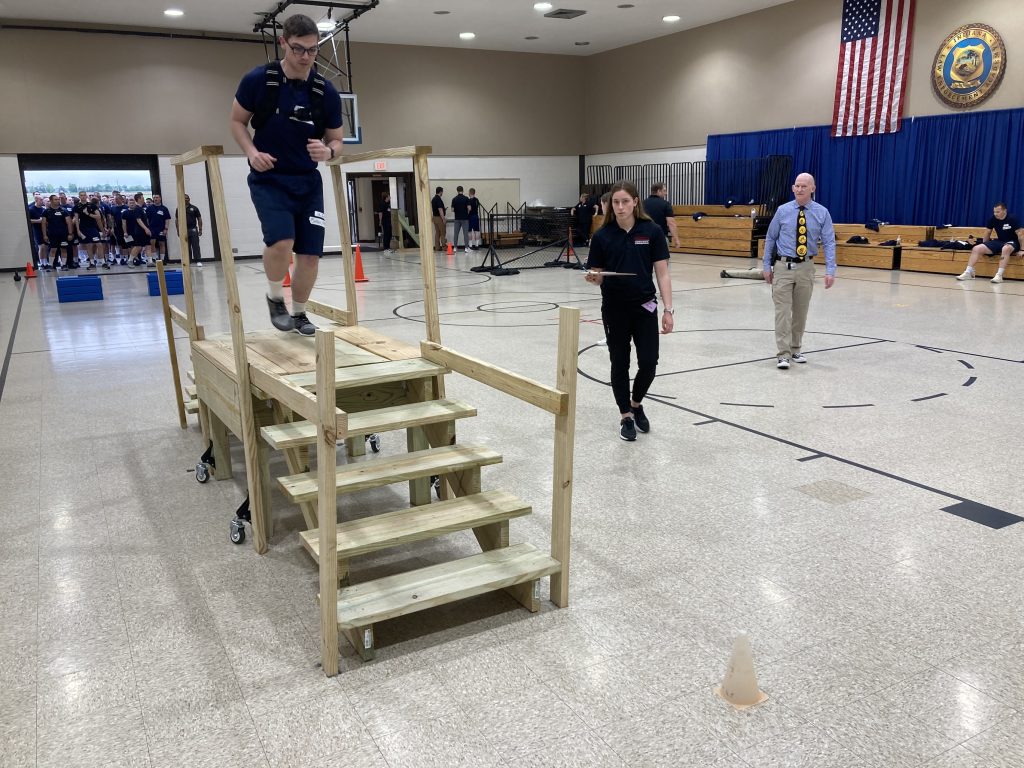Indiana Law Enforcement Academy partners with UIndy to design new physical fitness standards for trainees
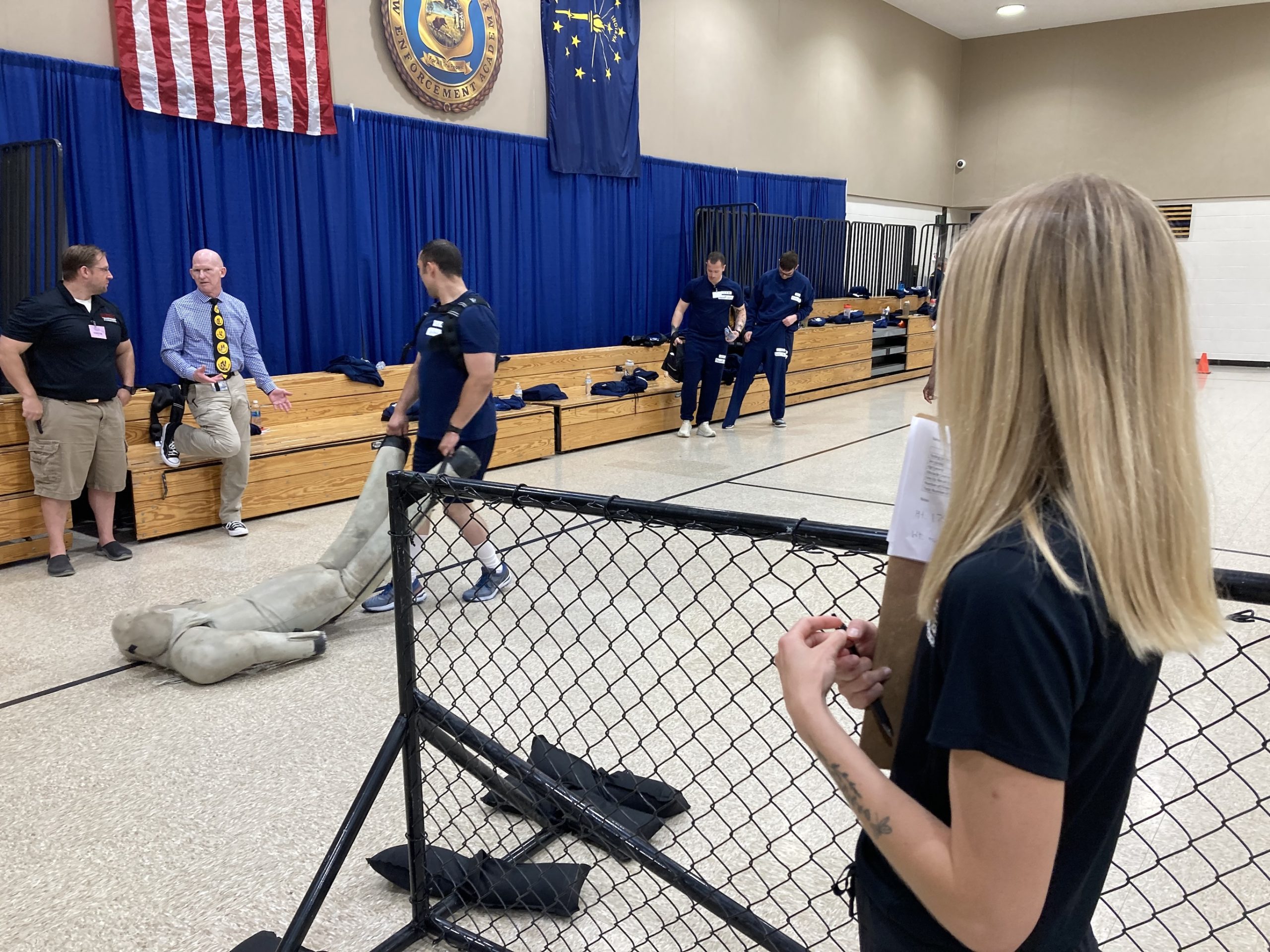
The Indiana Law Enforcement Academy is working to revamp the physical fitness standards for potential recruits who will protect the lives of Hoosiers as they are hired at police departments, sheriff’s offices and law enforcement agencies across Indiana. The design for the new test is a result of a partnership between the Indiana Law Enforcement Academy (ILEA) with kinesiology and exercise experts at the University of Indianapolis.
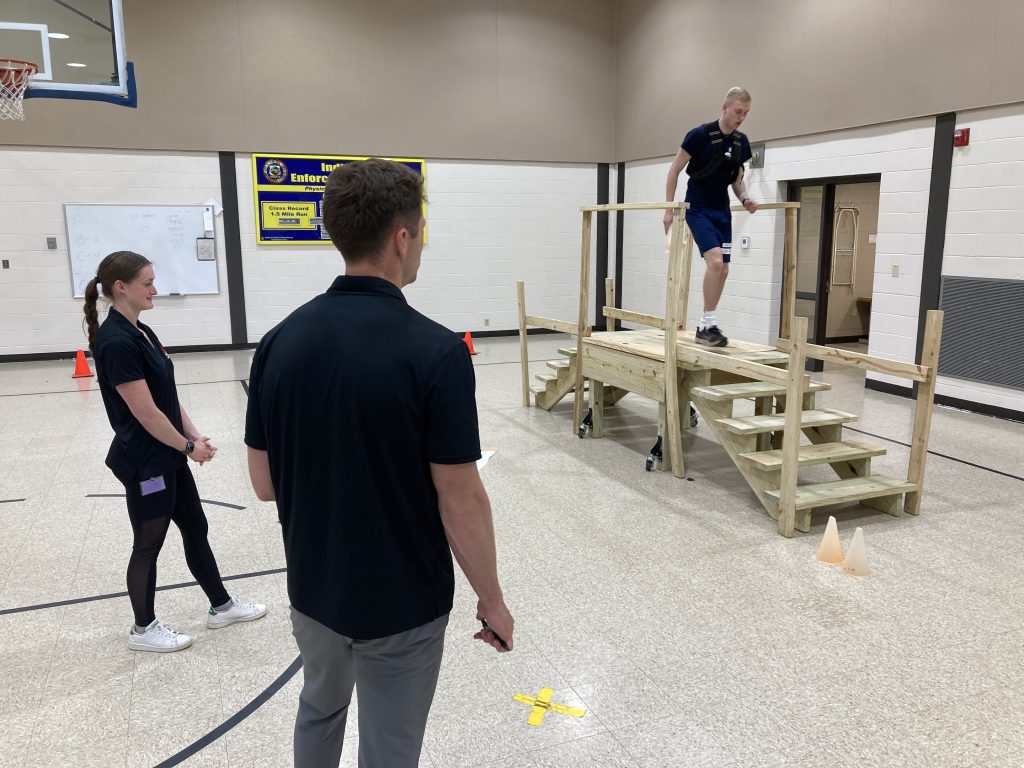
The goal for the updated standards is to better reflect—and be directly connected to—many of the 600+ essential job tasks as identified by Hoosier law enforcement agencies. Some of the elements for the new timed test include requiring trainees to climb over a 4-foot tall chain link fence, drag a 185 pound person for 50 feet as if they were rescuing someone, ascend more than three flights of stairs and jump over a simulated ditch or culvert—all while wearing a weighted vest to simulate the weight of the typical uniform.
“The purpose of the Indiana Law Enforcement Academy is to prepare Hoosier men and women to be the best law enforcement professionals that they possibly can be. Updating our physical fitness standards will make our recruits even better prepared,” said ILEA Executive Director Tim Horty. “I am thankful for the partnership with the University of Indianapolis to create and validate this test which will result in a better officer and a safer Indiana for everyone.”
Validation for the new test is underway, utilizing current Basic students who qualified for the ILEA using the current standardized tests. The current entry standards are made up of five tests including a 1.5 mile run to measure aerobic capacity and push-ups to measure upper body strength. They are published on the ILEA website, as the new test will be once the validation process is complete and the ILEA transitions to the new test.
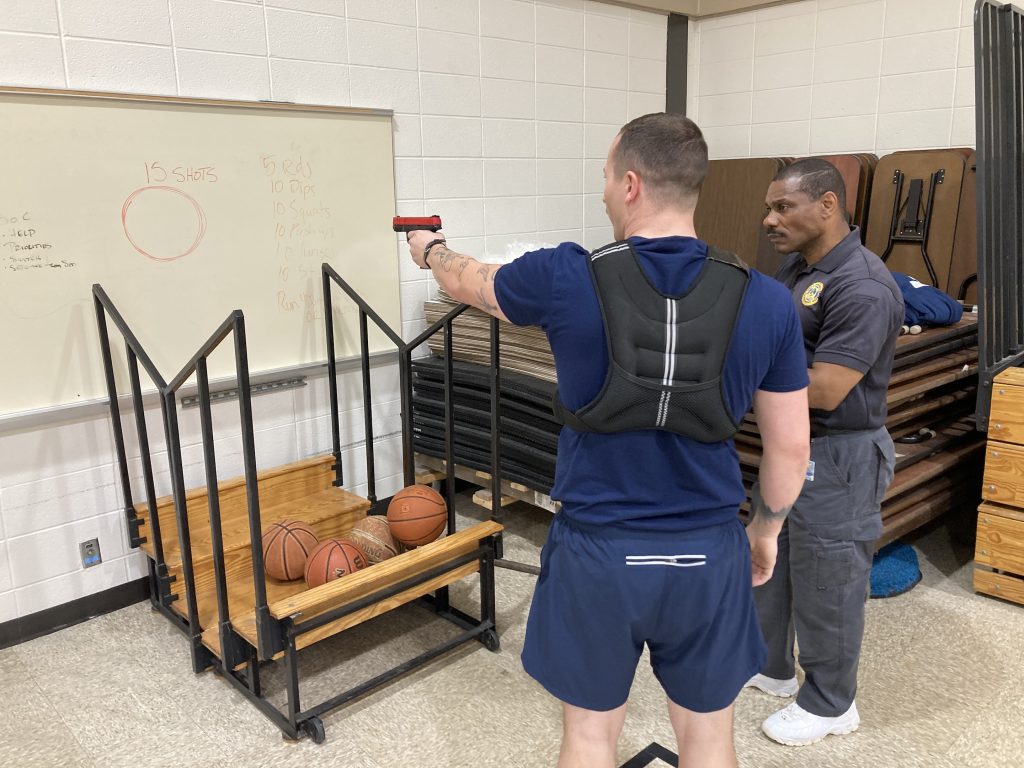
“It is critical that we do this right,” said Lt. Patrick Cousin who oversees ILEA’s Physical Fitness program. “We need to make sure that we have a test in which we have great confidence that it will accurately ensure a candidate will be able to do the physical requirements of the job. We don’t want to deny a good recruit the chance at a critically important career because there is no greater responsibility or honor than being a Hoosier law enforcement officer.”
Associate Professors of Kinesiology at the University of Indianapolis, Dr. Nathan R. Eckert, Dr. Trent E. Cayot, and Dr. Mindy Hartman Mayol have been working for more than a year creating the new test. They supervised a team of UIndy Masters in Exercise Science (MEXS) students who analyzed almost a decade’s worth of data to better understand the physical capabilities of past Basic students in order to help meet the need through the new test. MEXS students also partnered with the ILEA to help with the day-to-day fitness training of Basics throughout the year.
“This is a perfect example of the University of Indianapolis mission which places great value on experiential learning as well as service for impact,” said Eckert. “To be able to serve the Indiana Law Enforcement Academy as a trusted partner by designing a meaningful test is incredibly rewarding, both for me personally and the students who have gained great experience that cannot be replicated in the classroom.”
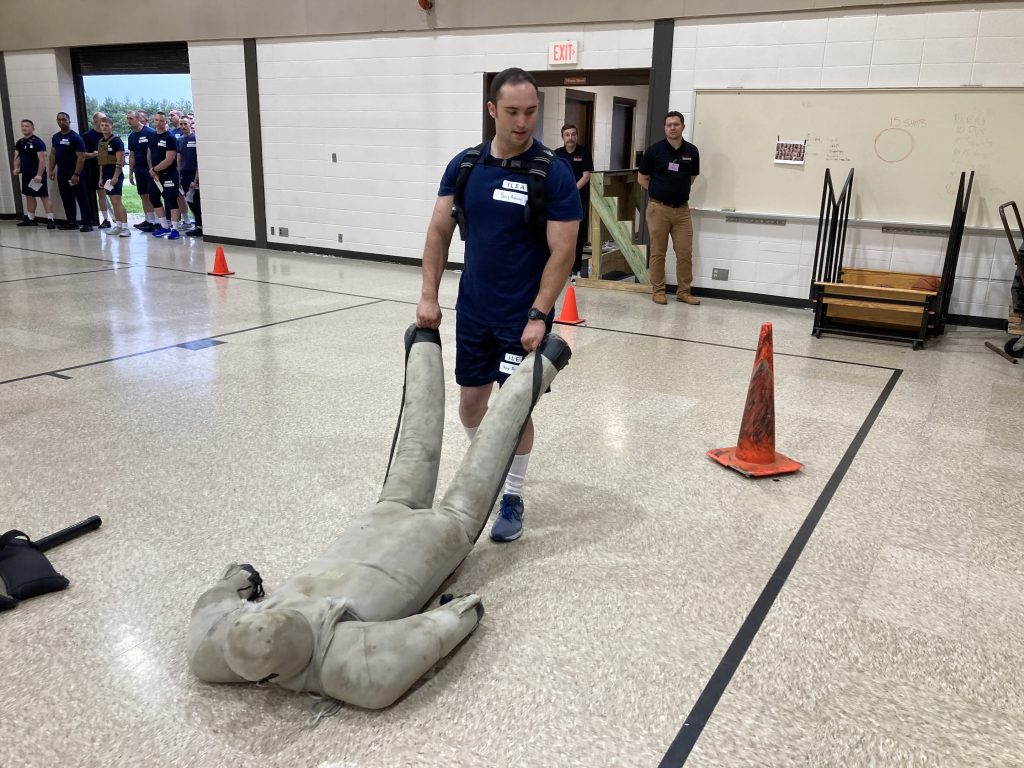
Beyond just helping design and run the new fitness test, UIndy students have had many opportunities to work with ILEA cadets, for example, on morning fitness training exercises. Eckert said that this provides invaluable hands-on training with a tactical population for students—many of whom want to continue to work with that group as a career, whether it is law enforcement officers, firefighters or the military.
And while this experience has so far been limited to masters students, Eckert hopes that undergrad students will soon be able to participate too.
“This is something that we can get involved with in our expertise and help make an impact on our communities,” said Eckert. “We are helping public servants become fitter. We know that a fitter population overall is a better population and our police population will have external demands even beyond a normal population. So we are helping law enforcement officers become fitter overall and understanding the greater role of fitness in their job. It’s just our little way of helping make things better.”
The ILEA hopes to transition to new standards within the next year.
